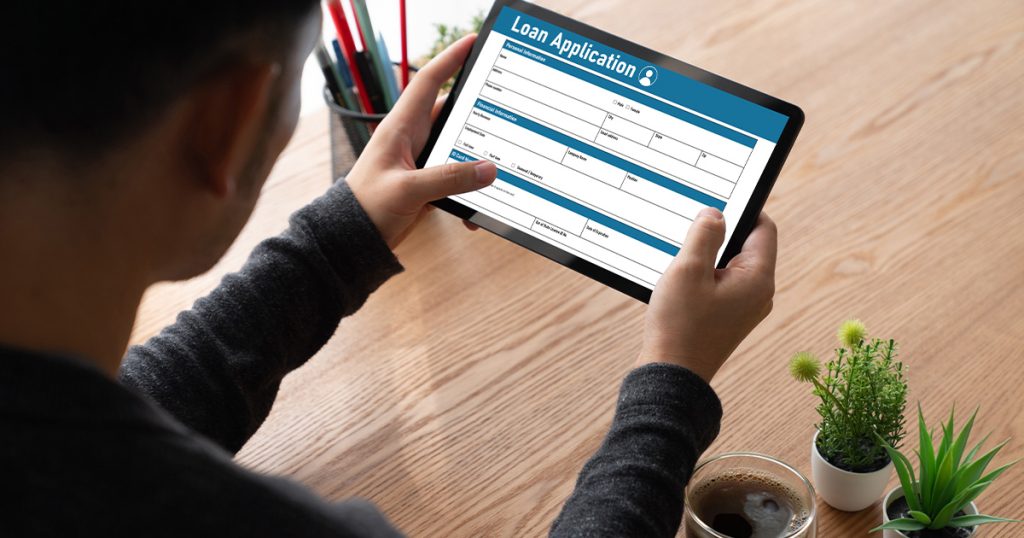Online lending in the Philippines has experienced a significant shift with the advent of digital transformation. This article delves into the transformative impact of technology on the online loan industry. Furthermore, it will explore advancements in digital lending platforms, automation in loan processing, blockchain integration, and more. By embracing digitalization, online loans have become more accessible, convenient, and efficient, revolutionizing the borrowing experience for Filipinos.
Digital Transformation in the Financial Industry
Digital transformation has revolutionized the financial industry, and the online loans sector in the Philippines has not been left behind. The adoption of digital lending platforms has empowered borrowers to access funds quickly and conveniently. Online lending has become an attractive alternative to traditional banking institutions. Firstly by offering streamlined processes and enhanced security measures. Digital transformation has also facilitated the integration of advanced technologies which enables faster and more accurate decision-making. Examples of such are the integration of artificial intelligence and machine learning into loan services.
Advancements in Online Loan Services
The digital transformation has brought significant advancements to online loan services in the Philippines. Borrowers now have access to user-friendly mobile lending apps that simplify the loan application process. These apps provide a seamless digital customer experience. Not only in lending and enabling borrowers to apply for loans but also in submitting documents and tracking their loan status effortlessly. Technology has also facilitated faster loan approvals, allowing borrowers to receive funds promptly and meet their financial needs efficiently.
Automation in Loan Processing
Automation plays a pivotal role in revolutionizing loan processing. Online loan platforms leverage automation to streamline the loan approval process. As a result of this, the time and effort required for manual verification and assessment are reduced. Moreover, through automation, online loan applications are evaluated based on predefined criteria, enabling faster and more objective decision-making. Data-driven lending decisions, powered by artificial intelligence and machine learning algorithms, provide a more accurate assessment of borrowers’ creditworthiness, resulting in fairer loan approvals and improved customer satisfaction.
Enhancing Loan Servicing with Robotic Process Automation
Robotic Process Automation (RPA) has transformed loan servicing in the online lending industry. RPA systems automate routine tasks such as loan repayment processing, account management, and customer support. By implementing RPA, online lenders can provide borrowers with efficient and error-free loan servicing, enhancing the overall customer experience. This automation enables loan servicers to focus on more complex customer needs, leading to better-personalized assistance and support.
Exploring the Potential of Blockchain Technology
Blockchain technology has immense potential in revolutionizing online loans. By leveraging blockchain’s decentralized and secure nature, lenders can ensure transparency, immutability, and integrity in loan agreements. Smart contracts on blockchain platforms facilitate automatic loan agreements and enforce terms and conditions. Moreover, they reduce the risk of fraud and enhance trust between lenders and borrowers. Additionally, blockchain-based online loans marketplaces provide borrowers with a wide range of loan options, competitive interest rates, and enhanced security.
Technological Innovations in Loan Underwriting and Credit Scoring
Technological innovations have brought significant advancements to loan underwriting and credit scoring in the online lending industry. Artificial intelligence (AI) algorithms and machine learning models have transformed the traditional methods of assessing borrowers’ creditworthiness.
By analyzing vast amounts of data, AI algorithms can accurately evaluate borrowers’ financial history, income, and other relevant factors. This data-driven approach enables lenders to make informed decisions based on comprehensive analysis, leading to more efficient and accurate loan approvals. The continuous refinement of machine learning models further improves the accuracy of credit scoring methods over time.
Furthermore, AI and machine learning in credit scoring allows lenders to mitigate risks effectively. By analyzing historical data and patterns, algorithms can identify potential red flags or indicators of default, enabling lenders to make informed decisions and minimize the risk of lending to high-risk borrowers.
Tracking Online Loan Industry Trends
Staying informed about online loan industry trends is crucial for borrowers and lenders. The online lending landscape is dynamic, with new trends, products, and services emerging regularly. By tracking industry trends, borrowers can make informed decisions about their borrowing needs. Moreover, lenders can adapt their services to meet evolving customer demands.
Online loans comparison websites play a vital role in tracking industry trends. These platforms provide borrowers with valuable insights and information about available loan options. And not only, but also with information about interest rates, repayment terms, and other relevant factors. By utilizing these websites, borrowers can compare different loan products and choose the one that best fits their financial goals and requirements.
Monitoring industry trends also allows lenders to stay competitive and provide improved loan products and services. By staying up to date, lenders can identify emerging customer preferences, industry challenges, and regulatory changes. This knowledge enables them to adapt their loan offerings and streamline processes. Further, it allows them to implement innovative solutions that better serve their customers’ needs.
Conclusion
The digital transformation has had a profound impact on online loans in the Philippines, ushering in an era of accessibility, convenience, and efficiency. With digital lending platforms, automated loan processing, blockchain integration, and technological innovations in loan underwriting, the borrowing experience has been significantly improved. Tracking industry trends and leveraging advanced technologies enable lenders and borrowers to stay informed and make well-informed decisions. The digital transformation will continue to shape the online lending landscape. As a result, Filipinos can look forward to a future where obtaining loans is easier, faster, and more tailored to their needs.
